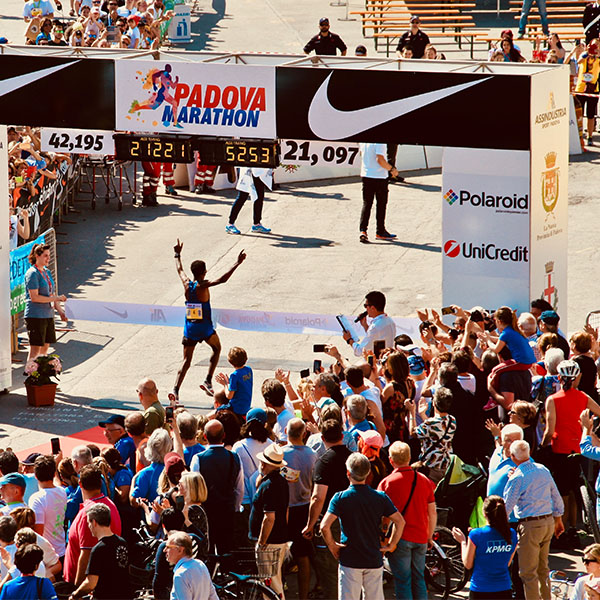How would you rate the quality of your sleep on a scale of 1-10? Do you wake up feeling refreshed, rejuvenated, and ready for training, or still tired and in need of a few extra hours? Well, if you dream of being a successful athlete with high levels of mental toughness, those extra hours of sleep are very important.
While many believe the common myth that mental toughness is the need to conceal your emotions, thrive through pain and sacrifice to achieve athletic success, this is not true. Mental toughness is showing an awareness of your emotions, learning from your mistakes, wanting to improve your skills, and helping others play well.
So, to make it to the top of your sport, you need to be mentally tough. So, what does sleep have to do with it?
Why is mental toughness important for performance in sport?
Mental toughness is crucial within sports. It has an impact on your performance in ways – for example, it can:
Help override your negative thoughts
Mentally tough athletes have high levels of self-belief. They are confident in their abilities and don’t lose confidence when things may not go their way. To be mentally tough, it’s important to block out negative thoughts and self-doubt. This aids performance and can increase your motivation levels, especially in competition.
Allow you to handle pressure better
Another characteristic of mental toughness is being able to execute skills under pressure. Having high levels of mental toughness will help you to see pressure as a challenge and encourage you to work harder and apply more effort to your performance, allowing for success in competition.
Increase your levels of concentration
If you have ever met a mentally tough athlete, you will know their focus is unmatched. Despite them being surrounded by distractions and different obstacles, they do not lose their concentration. They have selective attention and block out irrelevant factors that could hinder performance.
Why is sleep important for performance in sport?
Having a good night’s rest isn’t just important for helping you stay awake in the day, but also crucial to your performance. Sleep has so many benefits, such as:
Reducing your chance of injury
Research shows that when you get 8 or more hours of sleep a night, you are less likely to experience injury than if you sleep for less than 8 hours. This means that if you don’t want regular physio appointments, you should think about going to bed earlier!
Increasing cognitive function
Insufficient amounts of sleep can have a negative effect on your ability to make decisions, react to the opposition and think of strategies. In competition, your thinking processes are crucial for success. Not getting enough sleep can put you at risk of low-level performance.
Reaching peak athletic performance
Sleep also helps improve your athletic ability. A basketball study showed that when sleep was increased to 10 hours, the players were able to sprint faster and shoot more accurately. This means that if you want to improve your ability, you need to spend more time in bed.
How does sleep link to mental toughness?
In this fascinating study, researchers discovered that the relationship between sleep and mental toughness actually goes both ways: your mental toughness can actually make you better at sleeping. They found that those with higher mental toughness sleep better than others who are less mentally tough.
This may be because it acts as a stress buffer. Stress impacts your sleep quality and how long it takes you to fall asleep. Mental toughness was also linked to fewer sleep disturbances, longer sleep duration and better sleep quality. Those who experienced better sleep were left feeling restored and were in a more positive mood. This supports the idea that greater mental toughness is related to better sleep schedules, which we’ve established is a requirement for high performance in your sport.
4 tips for a better sleep
So, want to sleep better but don’t know where to start? Here are four simple strategies…
- Take a hot shower a night – This will help you to relax your mind and your muscles which will make it easier to fall asleep.
- Have a regular sleep/wake schedule – Creating the habit of sleeping and waking up at a specific time (even during the weekend) will allow your body clock to stay consistent. Once you’ve done this for a while, your body will start to naturally wake up at those times.
- Stay away from your phone at night – When you’re on your phone in the dark, your brain gets tricked into thinking that the bright light means it daytime. As a result, it will put more effort into keeping you awake. So, when it’s time for bed try to keep your phone away.
- Make sure you don’t nap for too long – If you nap for a long time during the day, then when you try to go to bed, you won’t feel tired until very late into the night. Try to keep your naps under 30 minutes and avoid napping too close to your bedtime to avoid this.
Final thoughts
Sleep is sometimes the forgotten factor when it comes to improving mental toughness and athletic success. Many athletes and coaches fail to consider to massive impact it can have on performance.
Better sleep will not just leave you feeling more refreshed in the morning but also increase your mental toughness – which, interestingly, improves your sleep quality in turn. So next time you strive to improve your mental toughness, have a look at your sleep schedule.




